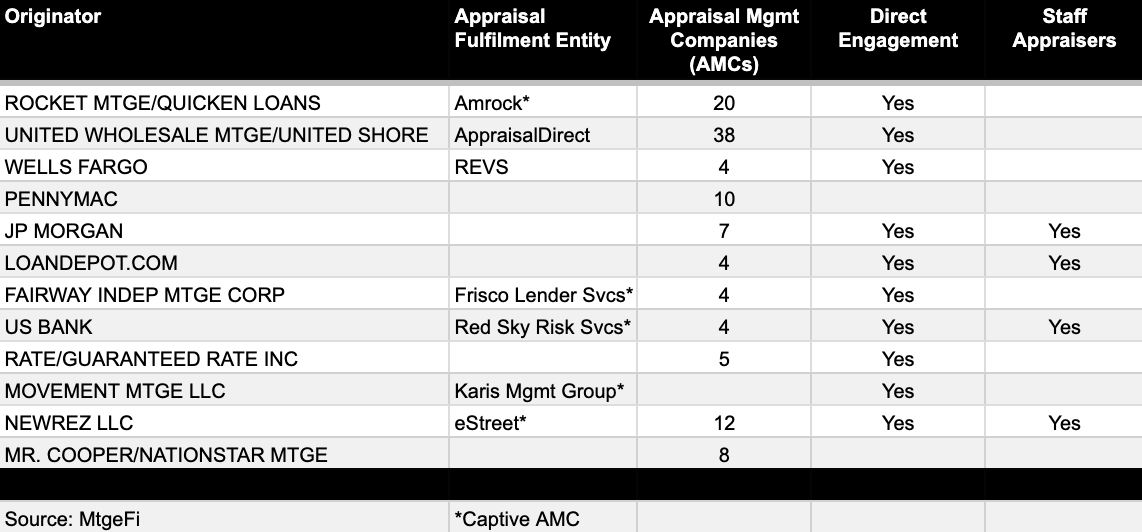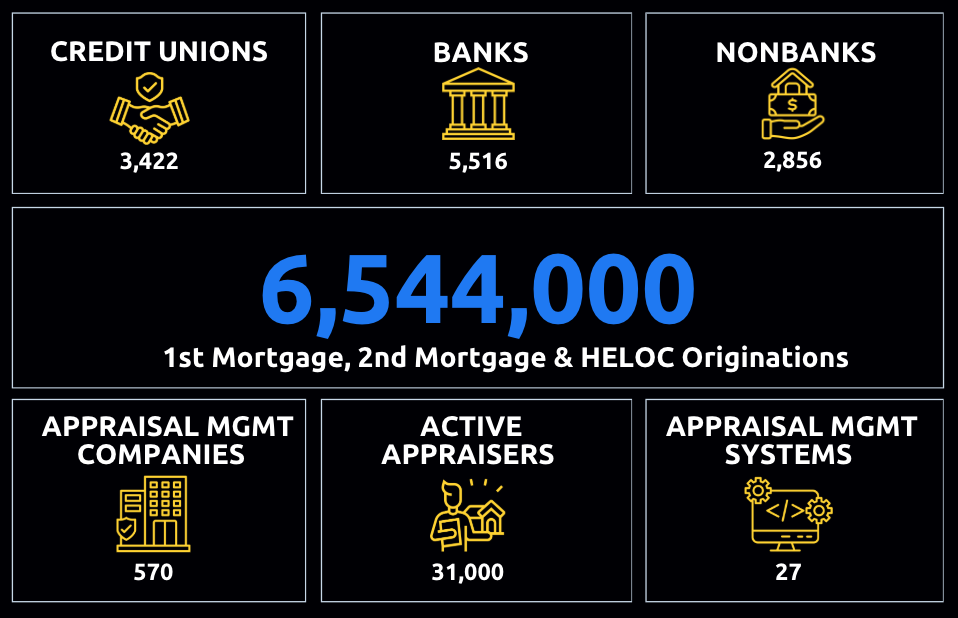Your cart is currently empty!
Appraiser direct engagement is where lenders or authorized third-party entities work directly with licensed appraisers to perform property appraisals for mortgage transactions. This approach contrasts with the use of appraisal management companies (AMCs) as intermediaries.
This article reviews the main aspects of direct engagement, key considerations, and offers some best practice recommendations for lenders considering this model.
Key Features
- Direct Communication: Lenders or authorized parties communicate directly with the appraiser regarding the scope of work, property details, and any specific requirements for the appraisal
- Customized Service: Appraisers may have more flexibility to tailor their services to the lender’s specific needs or requirements
- Reduced Costs: By eliminating the intermediary (AMC), lenders may save on fees associated with managing the appraisal process
- Faster Turnaround: Without an AMC acting as a middleman, scheduling and delivery timelines may be more efficient
- Maintains Compliance: Appraiser direct engagement models must adhere to regulations, and particularly Appraiser Independence Requirements (AIR) designed to prevent undue influence or bias
- Local Expertise: Direct engagement often allows lenders to choose appraisers with specific knowledge of the local market, which can enhance appraisal accuracy
Key Considerations
Appraiser direct engagement is especially appealing to lenders who want to control the appraisal process, plus have the resources to ensure compliance and quality.
Advantages:
- Improved communication and transparency with borrowers and appraisers
- Potential for lower costs and quicker turnarounds for borrowers
- Potential for increased fees for appraisers
- Opportunity to work with appraisers who specialize in specific properties or areas
- Appraisers often prefer to work directly with lenders
Disadvantages:
- Lenders must manage more of the compliance burden, including ensuring adherence to AIR and the associated audits and reporting
- Increased administrative workload compared to outsourcing to an AMC
- Potential exposure to perceived conflicts of interest if not managed properly
- Lenders may not be able to pass on the administrative and compliance costs of appraiser direct engagement operations to borrowers, as they can with AMCs
Considerations:
- Lenders may consider incorporating management of alternative (non-appraiser) valuations and inspections into this function as these may be required by investors for home equity and non-agency loan originations, and loan servicing
- Fannie Mae and Freddie Mac (the GSEs) are migrating to a significantly revised appraisal process through 2024 to 2027, including the Uniform Appraisal Dataset (UAD) 3.6 and dynamic Uniform Residential Appraisal Report (URAR)
- GSE appraisal modernization programs, allowing non-appraiser interior property inspections, are now live and include inspection-based appraisal waivers, desktop appraisals and hybrid appraisals. These valuation options are in addition to the existing GSE ‘traditional’ appraisal that requires an appraiser or supervised appraiser trainee to complete the internal property inspection
- The latest Freddie Mac Appraiser Capacity for November 2024 shows ~31,000 active licensed appraisers submitting appraisals in the month, compared to ~40,000 before the COVID-19 pandemic, albeit on lower mortgage volumes.
Appraisal Fulfillment Models and Captive AMCs
The selection of large bank and nonbank lenders below shows many operate a blended model – using direct engagement and AMCs to satisfy needs for different investors, loan types, property types and specific geographies. Some lenders additionally employ staff appraisers for field appraisals.

The information is derived from publicly available sources, and is believed to be accurate at the time of publication.
MtgeFi also tracks (not displayed) Loan Origination System (LOS) and Appraisal Management System/Software (AMS) for the lending institution and affiliated AMCs, together with loan origination and servicing volumes by production channels and various types of settlement services. MtgeFi tracks lenders who operate direct engagement for appraisal fulfillment.
Captive AMCs and direct engagement
We define a captive AMC as owned or controlled by a financial institution, lender, or affiliated entity. These AMCs operate independently but generally derive the majority of their business from the controlling entity. We consider a captive AMC as largely operating a direct engagement model on behalf of their lender.

Have questions, need additional information or want to learn more?
Best Practices for Appraiser Direct Engagement
These are some of the essential steps to create a direct engagement model:
- Build and Maintain a Roster: Build a list of qualified, licensed, and experienced appraisers who understand the local market
- Implement Compliance Safeguards: Use documented processes and systems to ensure independence and avoid undue influence
- Conduct Periodic Reviews: Regularly evaluate the appraiser’s work for performance, quality and adherence to guidelines.
- Implement an Appraisal Management System (AMS): Commercial software is available to support key functions of appraiser direct engagement:
- Network or panel management – build and manage the appraiser roster
- Order management – assign, schedule, track & fulfill appraisal orders
- Communication – engage via email, text & phone with appraisers compliantly
- Pre-built Integrations – work seamlessly with other mortgage systems
- Payments – collect borrower payments, pay appraisers & issue tax documents
- Reporting – for pipeline, compliance and performance metrics
- Alternative Valuation Vendors: Select strategic AMCs and inspection vendors (from the AMS) for loans where an appraisal is not required, and other non-appraiser valuations and inspections are specified by investors.
More information from the Appraisal Subcommittee
The Appraisal Subcommittee (ASC) oversees the real estate appraisal regulatory framework for federally related transactions. The ASC is a subcommittee of the Federal Financial Institutions Examination Council (FFIEC)
The ASC maintains a list of state licensed appraisers and AMCs, together with the state licensing agencies, which can be found below:
